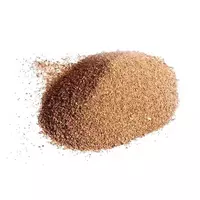Coffee substitute

We think that many residents of our latitudes are familiar with such a concept as coffee substitutes. In essence, coffee substitutes are substances that have all the basic characteristics of coffee, but do not contain caffeine in their chemical composition. Coffee substitutes have found widespread use in the food industry. As a rule, coffee substitutes are consumed for several reasons.
As a rule, coffee substitutes are used for medical reasons, as well as religious or economic reasons. Most often, pre-fried grains of rye or barley are used as coffee substitutes. In addition, the roots of plants such as chicory or beets often act as a substitute for coffee.
Among the main types of coffee substitutes, chicory mixtures are rightfully considered the most popular and widespread. Chicory root is cleaned of contaminants and then dried and fried. Chicory's chemical composition contains up to 75% water, as well as inulin and oligosaccharides, compounds that support the gut immune system.
In addition, the root of chicory contains pectin, which helps to remove toxic compounds from the human body. Most often, chicory root is mixed with barley grains and a small amount of coffee beans are added to the mixture to give the drink a distinctive taste and aroma. Coffee substitutes can be a drink made from oak acorns.
Acorns are dried and then baked in special ovens. Acorns are cleaned from shell and ground to powdered state. Coffee substitutes are also made from fried barley flour, and also from fried baobab seeds. In Japan, a drink called mugitya or 麦茶, which is fried grains of several cereal crops, is used as coffee substitutes.
Usually, wheat or barley is used to produce mugit. Among other things, carob beans, dandelion roots, as well as guarana fruits, girasol rhizomes, yam seeds, beech nut and some other plants can be used as a substitute for coffee. Many proponents of a healthy lifestyle argue that coffee substitutes or decaffeinated drinks exclusively benefit the human body.
However, this statement is not entirely true, since even coffee substitutes contain caffeine, since in the composition of drinks in accordance with international standards there are about 3 mg of alcoloid compounds.
Therefore, it is worth carefully studying the chemical composition of coffee substitutes before eating drinks. Since some categories of people simply cannot eat coffee for health reasons, natural coffee substitutes can be a great alternative to a drink that has long conquered the entire planet Earth.
coffee substitute 382 kCal
Energy value of coffee substitute (Ratio of proteins, fats, carbohydrates - ju):
Proteins: 3.8 g (~ 15 kCal)
Fats: 0.3 g (~ 3 kCal)
Carbohydrates: 90.9 g (~ 364 kCal)
Energy ratio (bj | y): 4% | 1% | 95%
 Español
Español Français
Français Português
Português Русский
Русский 简体中文
简体中文 繁體中文
繁體中文 日本語
日本語 한국어
한국어 العربية
العربية Türkçe
Türkçe Қазақ
Қазақ Deutsch
Deutsch Italiano
Italiano Українська
Українська
